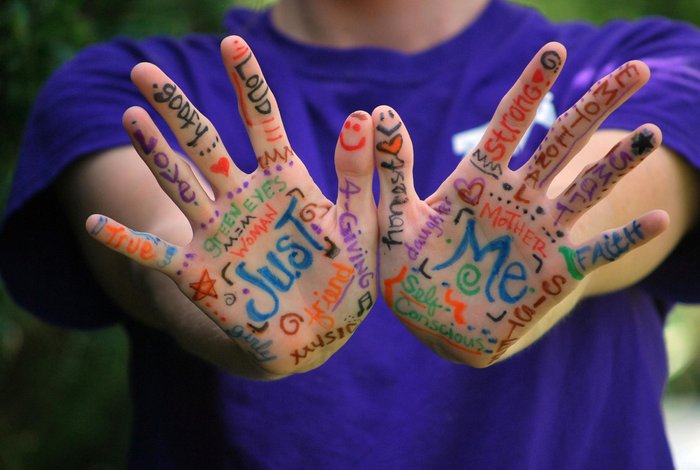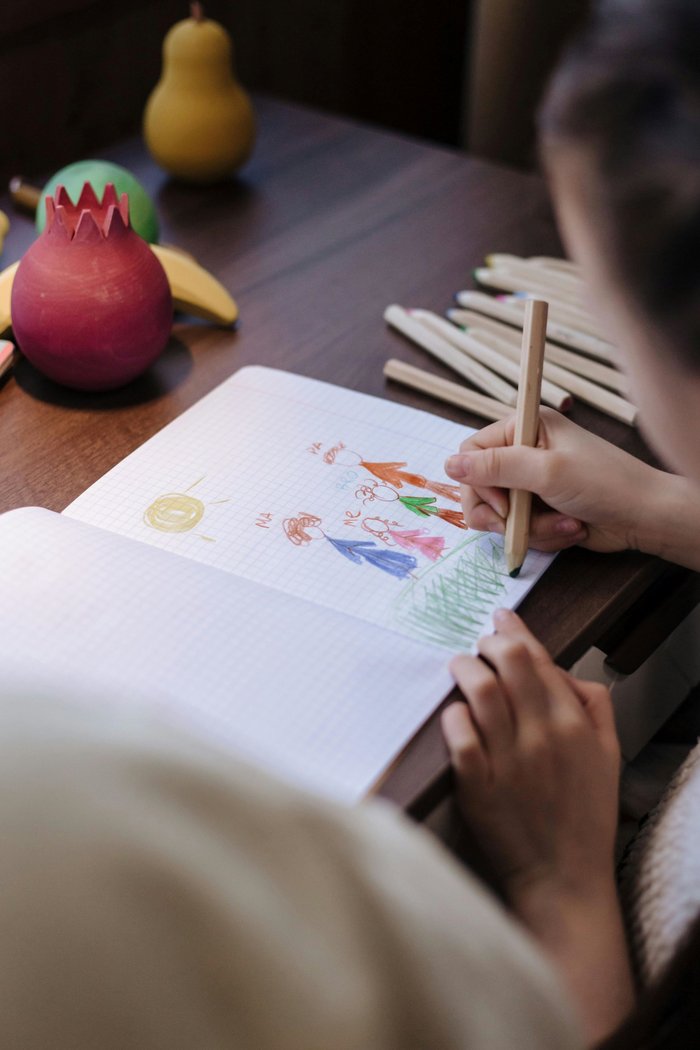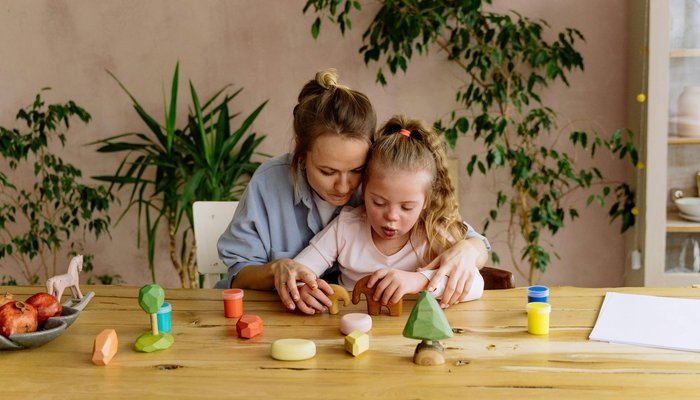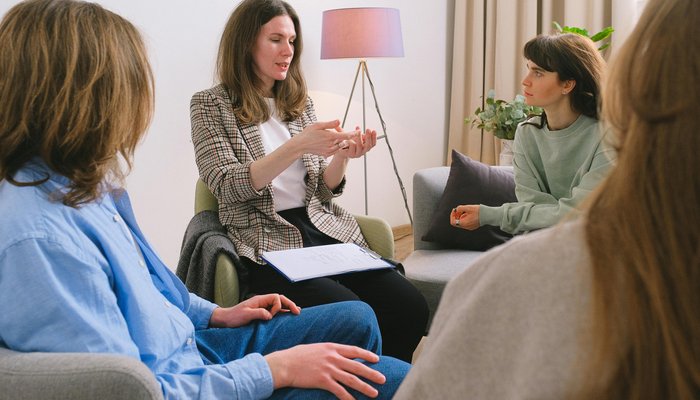Individual therapeutic support
Our holistic therapeutic support is offered through a trauma and attachment-informed lens.
The DECC provides a range of therapeutic services to meet the needs of young people in care. Find out what we can offer and how we can help.
On this page: Direct therapeutic intervention | Therapeutic approaches | About therapeutic support

Therapeutic intervention can be offered to children and young people (aged 0-24) who have a current legal status of Child in Care, or who are a care leaver. Children must be living within Derby and Derbyshire in order to access the service.
Please note, our referral process for 18+ young people will not be available until January 2026.
Children and young people will only be allocated for direct therapeutic intervention following the Referral, Screening and Recommendations Process and a Detailed Consultation. The types of intervention that children and their networks might be offered include:
- Attachment Focused interventions
- Trauma Focused interventions
- Placement Stability focused interventions
Typically, an intervention of around 6-12 months is offered, however where there are particular complexities of need and risk this may be extended.
What might direct therapeutic support look like?

Therapeutic Approaches
Whilst trauma and attachment are at the heart of our approach, The DECC team uses a range of therapeutic modalities to best support the needs of each young person accessing our service.
Our practitioners and psychologists are trained in a variety of therapeutic models and practice, that enable us to provide an holistic and child-centred approach towards each referral.
Take a look below for more information around some of our key modalities within the team.
Dyadic Developmental Psychotherapy (DDP)
Dan Hughes, a clinical psychologist, developed DDP as a therapeutic approach for families with adopted or foster children, who have faced neglect and abuse.
DDP integrates attachment theory, our understanding of developmental trauma, the neurobiology of trauma, attachment and caregiving, intersubjectivity theory, and child development.
Children with troubled backgrounds may have experienced numerous changes in caregivers, leading to difficulties in trusting adults. They might view parents as unsafe and may struggle to seek comfort or help from them. This can result in insecure attachments and efforts to prevent emotional closeness with their foster/adoptive parents.
Dan recognised the essential role that adoptive parents, foster parents, relatives and residential caregivers play as attachment figures for children who have experienced early trauma and loss, making it challenging to trust adults.
He discovered that traditional parenting methods often fell short in helping these children, prompting him to create a therapeutic model that introduces a new approach to everyday parenting based on the principles of PACE - Playfulness, Acceptance, Curiosity and Empathy.
Theraplay
Theraplay is a dyadic therapy for children and families, recognised by the Association of Play Therapy as one of seven foundational psychotherapies for children. Theraplay is designed to support healthy attachment development between caregiver and child.
In sessions, the practitioner guides the parent and child through playful, fun games, developmentally challenging activities, and tender, nurturing activities. Engaging with each other in this manner, supports the parent to regulate the child's behaviour and communicate love, joy and safety. This interaction helps the child to feel cared for, secure, connected and worthy.
Filial play therapy
Filial Play is a play-based intervention designed to enhance and build-upon the relationships between caregivers, and their children. In this approach, a therapist observes and guides parents/caregivers in using play to foster a more positive connection with their child.
Filial play trains foster parents to provide therapeutic play sessions at home with the children in their care, making it especially beneficial for children who may not be ready to engage directly with a therapist. Similarly to Theraplay, it emphasises the power of play in building secure and nurturing relationships.
Family systems therapy
Systemic family therapy, is a form of psychotherapy that emphasises the dynamics between family members and their interactions with the outside world.
In this approach, a therapist collaborates with family members to:
- Explore challenging thoughts and emotions
- Recognise and appreciate each other's needs
- Build on the family's strengths
- Understand how relational patterns develop and persist
- Encourage proactive steps towards change
Play therapy
Play therapy is a therapeutic approach that utilises play and art materials as primary tools for self-expression. This method is especially beneficial for children who may struggle to articulate their feelings or experiences verbally.
In play therapy, children can creatively explore their thoughts and emotions in a dynamic and non-verbal way. During sessions, they engage with various mediums, such as drawing, painting, water, clay, sand trays, miniatures, guided imagery, relaxation techniques, drama, puppetry, poetry, movement and music. This process allows them to express themselves feely and gain therapeutic support in a safe environment.
Drama Therapy
Drama therapy is the purposeful use of drama and theatre techniques to achieve therapeutic objectives. This active and experiential practice allows participants to share their stories, set goals, solve problems, express emotions, and experience catharsis.
Dramatherapy uses a broad array of dramatic techniques, using both verbal and non-verbal methods. While storytelling and dialogue are important components, therapy does not rely solely on spoken language. Movement and embodiment play crucial roles, enabling children and young people to address and explore their feelings and challenges in a dynamic way.
Music Therapy
Music therapists harness the inherent qualities of music to support individuals of all ages. At the heart of music therapy is the therapeutic relationship built through live musical interaction and play between the therapist and young person. A variety of musical styles and instruments, including the voice, are employed, often with an emphasis on improvisation. This approach helps young people to develop their own unique musical language, facilitating exploration, self-expression, and connection with the world around them.
As with other creative therapies, music therapy does not rely on verbal communication, rendering it particularly effective for individuals who struggle to communicate verbally.
Children who have been removed from their families and potentially experienced multiple placement breakdowns often have fragmented life histories, which can leave them feeling lost and lacking a sense of belonging. This can hugely impact upon their well-being and increase their vulnerability.
Therapeutic Life Story Work provides these children with an opportunity to explore, question, and understand past events in their lives. It creates a safe space for them to express and process their emotions, helping them make sense of their experiences and how these relate to their current thoughts, feelings, and behaviours.
"Therapeutic life story work can help children identify and understand the ghosts of the past, freeing them from being haunted by those experiences" (Richard Rose, 2012).
N.B - Please note that we do not offer Life Story Work as a direct therapeutic intervention, however, can provide support via consultation request, see below for more information on bookable consultations.
New Trauma-Focused CBT interventions in development

Visit this page to make a full referral now.
Therapeutic Parenting Groups
While individual support is often preferred, sometimes group support may be recommended following consultation.
Our programmes—The Attachment Group and RE-Play—offer foster carers a supportive space to share experiences, learn from peers, and build confidence in therapeutic parenting and play skills.
These approaches not only provide practical strategies but also foster a sense of community and shared understanding, helping carers strengthen connections and promote healing.

Learn more on our group support page.


